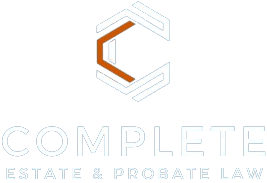My dad died in 2010 from colon cancer. He was 68. My mom died in 2021, she was 78. I count my blessings every day that my siblings and I had our parents as long as we, did but I wish that we had them longer. I wish my dad met my son. My parents died so young. Not a day goes by that I don’t miss them and grieve for them. Grief never goes away – it is like an ocean, sometimes calm, sometimes turbulent, and sometimes, out of nowhere, hits like a tsunami.
My relationship with my parents changed as we all aged, had they lived longer, it would continue to change. After my dad died, my mother, who was very independent, mentioned that she was planning on moving into assisted living by age 75. This didn’t happen, but having that conversation about short-term and long-term options, and other similar conversations, were both necessary and hard. As our parents’ age, it feels like a battle between independence and safety, and who gets to determine what independence and safety mean, and who gets to prioritize between the two.
It’s difficult to plan for your aging parent if you do not know their plan, or even if they have a plan. Discussing the plan can be difficult, but can be addressed in a multitude of ways. You can schedule a meeting to discuss the plan or have a series of small conversations that fill in different areas of what you need to know. Look for openings (someone has been hospitalized, a premature death, something in the news, comment made by parent) and go from there. Having this conversation (or conversations) is important and should be done as early as possible. This is one of the best things you can do – for your parent and yourself.
Questions to consider:
-
-
-
What do they want? Is what they want possible considering their health and assets?
-
Who needs to be a part of the team?
-
Is there estate planning in place? Trusts, Will, Advanced Directives, DPOAs
-
What are the assets? Debts? Income?
-
Is there any long-term care insurance?
-
Where are the important documents kept?
-
Are there any plans for memorial services?
-
Is there a safe deposit box? If so, where are the keys and who has access to the box?
-
Does your parent what to live independently? If so, are there any barriers to this and what are solutions to those barriers? If a move is needed, where does your parent want to live?
-
-
The more information you can gather from your parent, the more prepared you will be if it becomes necessary for you start making decisions with them and, eventually, for them. It lessens the difficulty in the continuing change in your relationship, as you take on a more active role in caring for your parents. We can help you and your parent with this difficult process.








